How to get an avocado tree to fruit – 3 expert tips for growing this popular tropical fruit
Avocados need very specific conditions to grow, but our tips can help you get a bountiful harvest

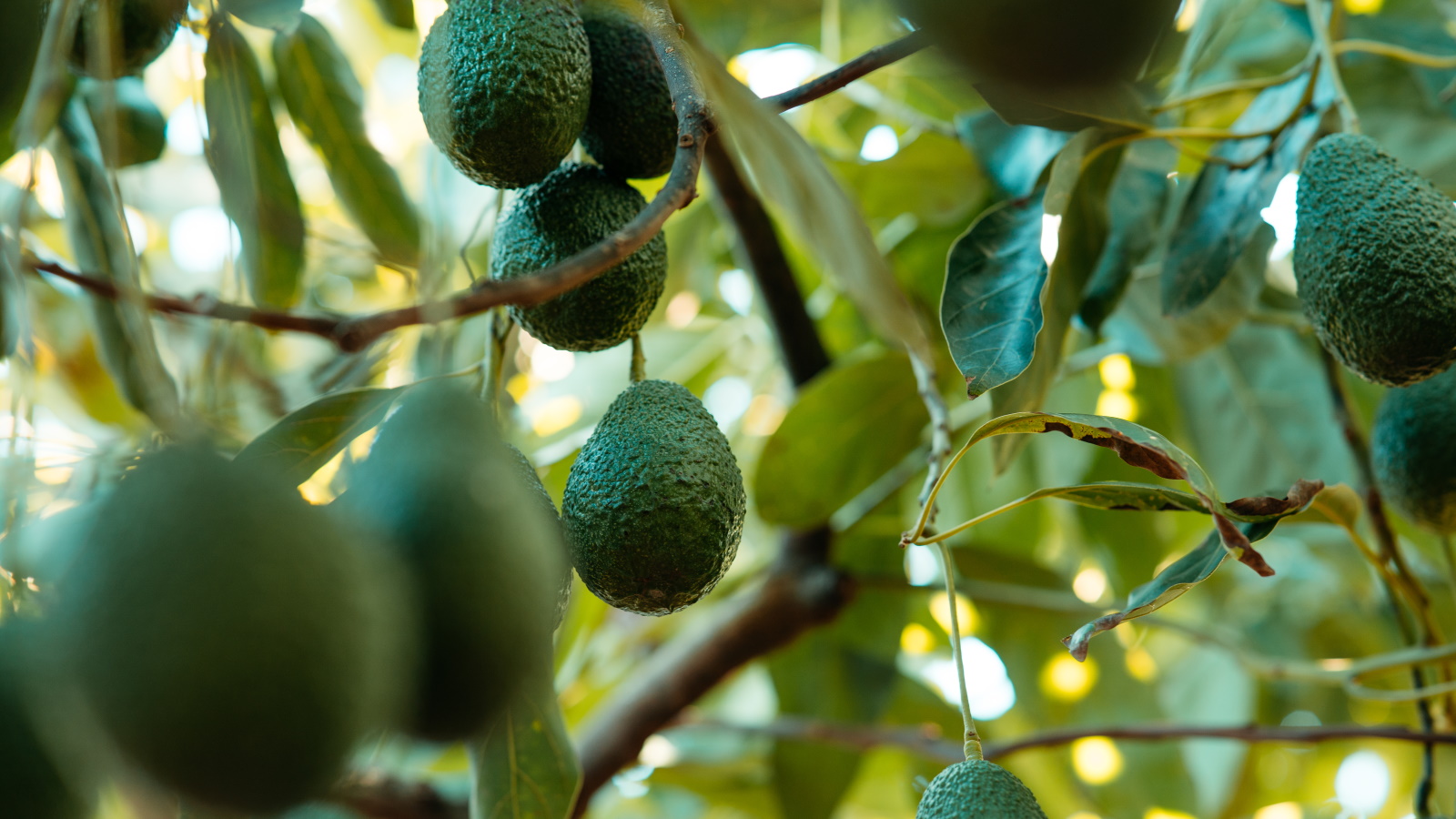
Avocados have grown in popularity as a trendy breakfast food in the last decade, and many have found joy in growing a new avocado plant from the pip of an existing one. Through hydroponics, it's easy to start an avocado tree in this way. However, these plants need some specific growing conditions in order to produce avocado fruit.
If you grow an avocado tree in your yard but are struggling to collect delicious green fruit from it, it might be an indication something in its growing environment is wrong. Of course, it's easier to adjust your avocado's growing conditions if you are growing it as a fruit tree in a pot. Nevertheless, an avocado tree in a more permanent position can also be encouraged to produce fruit.
Here, we've compiled everything you need to know about the optimal conditions for an avocado tree and how to get it to fruit if you aren't having any luck.
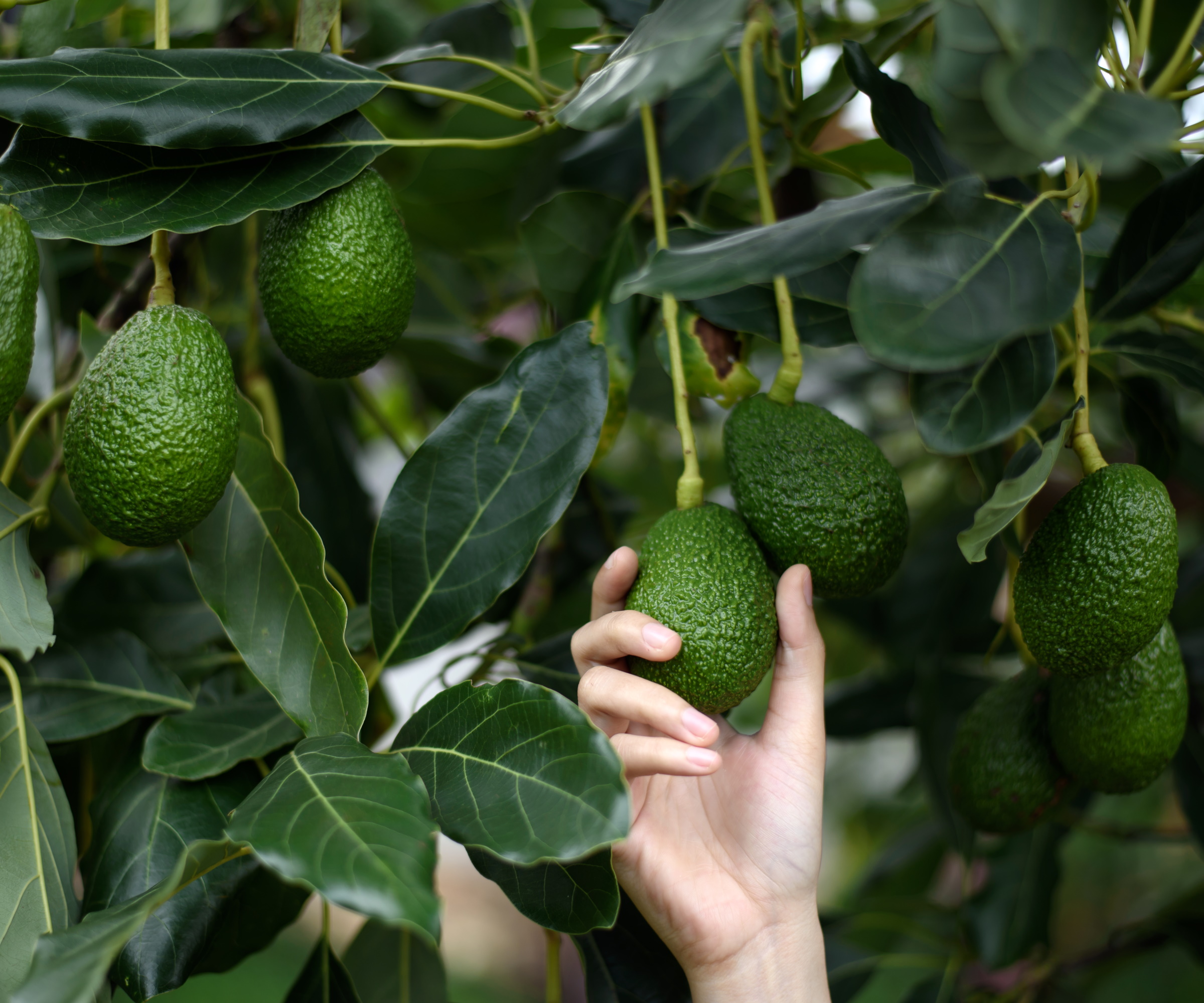
3 ways to get an avocado tree to fruit
The first thing to know about growing avocados is they thrive across US hardiness zone nine to zone 11. They're unlikely to fruit in colder climates outdoors, but you can also grow avocado from the seed indoors or in a greenhouse. If, however, your avocado tree is struggling to produce fruit, then try adjusting one of the following growing conditions:
1. Keep your avocado tree out of frost
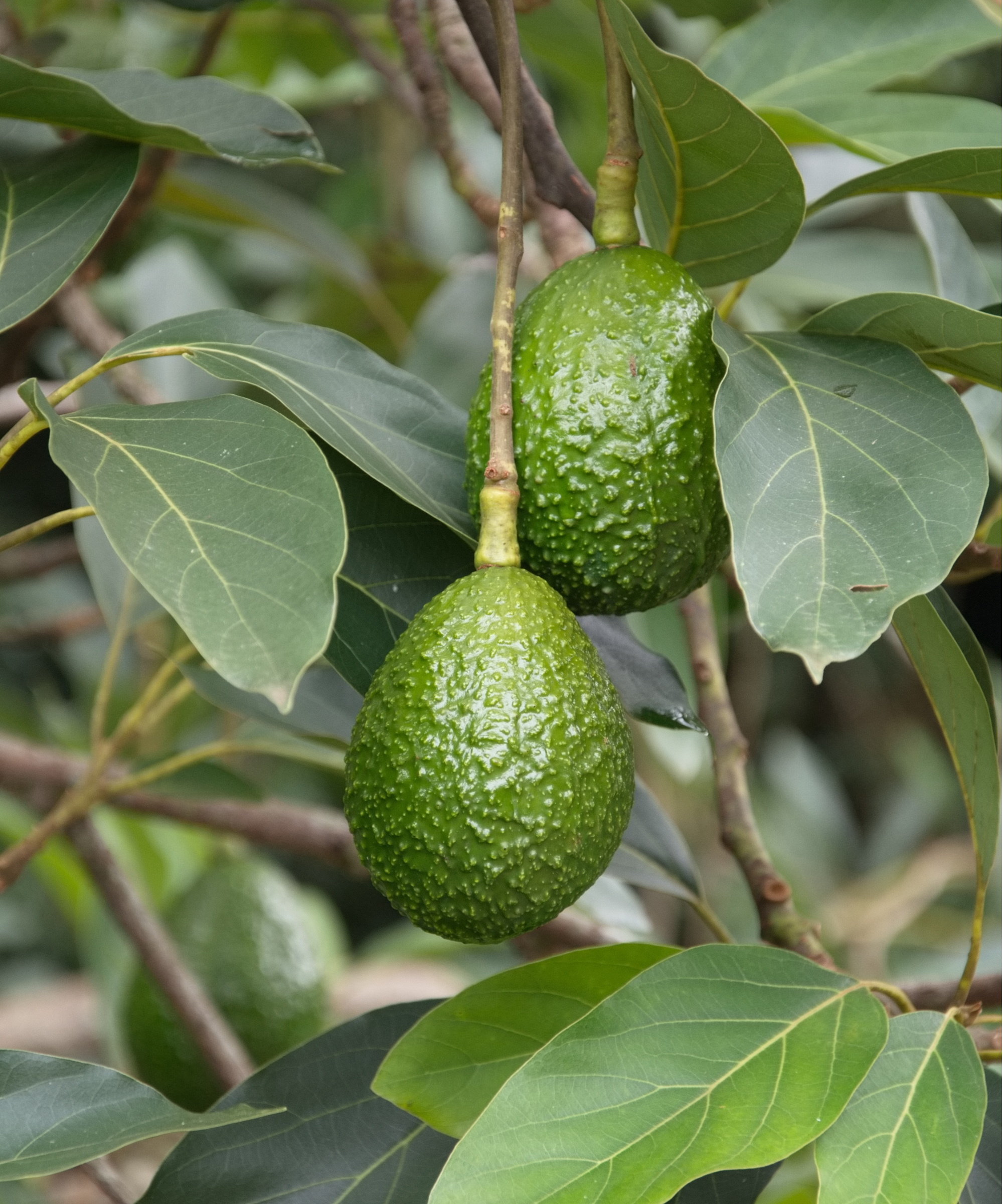
As mentioned above, avocados are hardy to warmer climates and aren't frost-tolerant. Therefore, it is advised to protect your avocado tree when overwintering your garden. Failing to do so can have detrimental impacts on the health of your tree and its ability to fruit.
'The greatest challenge to growing avocados is this is a tropical plant and as a result, cold is the most limiting factor. Anytime the temperatures drop into the freezing category, the plant can have an injury,' explains Dr. Larry Stein, professor and AgriLife Extension Horticulturist at Texas A & M University. 'Such injury can not only injure the plant but also reduce potential fruiting.'
If your avocado tree is potted, try moving it into a greenhouse before the frosts, or even moving it indoors to overwinter. If your tree is in a more permanent position, use methods like mulching and tools like horticultural fleece (available at Amazon) to help your avocado tree get through the winter season unharmed.
Design expertise in your inbox – from inspiring decorating ideas and beautiful celebrity homes to practical gardening advice and shopping round-ups.

Larry Stein, Ph.D. is a professor and AgriLife Extension Horticulturist. Stein received his B.S. in Horticulture from Texas A & M University in 1979 followed by a M.S. in 1981 and Ph.D. in 1985. He was appointed Extension Horticulturist at the Texas A & M Research and Extension in Stephenville in 1985 to work on pecans, fruit crops, and vegetables. In 1992 he transferred to the Research and Extension Center in Uvalde to continue work in these same areas and was promoted to Professor. Stein was named Associate Department Head for Extension Horticulture in September of 2012.
2. Provide your avocado tree with plenty of sunlight
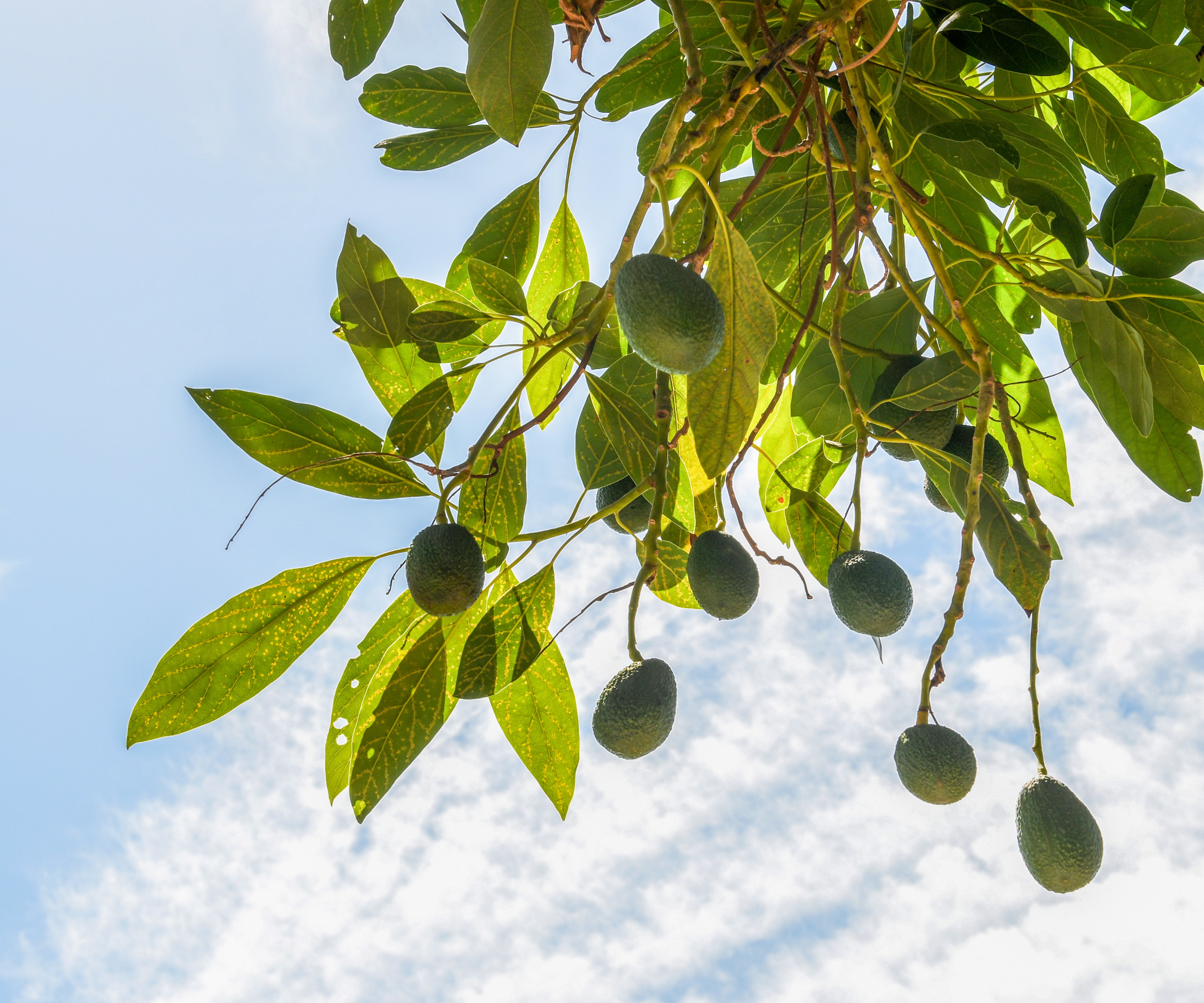
Like other indoor fruit trees and outdoor fruit trees, avocados need plenty of direct sunlight to produce fruit. This is especially true due to their sunny, humid native habitat of Mexico and South America.
Sunlight plays an essential role in pollinating avocados for fruit production: 'They tend to require proper pollination, which will require two different varieties with two different bloom patterns,' explains Tammy Sons, horticulturist and CEO of TN Nurseries. 'They require six to eight hours of direct sunlight a day with moderate temperatures to flower properly for cross-pollination and develop fruit.'
If your avocado tree is growing somewhere shady, it is unlikely to produce fruit. Try moving a potted avocado tree to a sunnier spot to encourage spring blooms. For avocados in a permanent spot, try pruning surrounding tree branches that may be blocking exposure to sunlight.
'When people bring their plants inside to prevent freeze injury, normal home settings don't often provide enough light,' says Larry. 'The key is to move these plants in and then right back out once the danger of freezing has passed.'

Tammy Sons is a plant expert, garden writer, and educator. Tammy is the CEO and founder of TN Nursery, a thriving online plant nursery based in Altamont, Tennessee. She is also a prolific writer, sharing her knowledge through articles on various gardening topics, including plant care, sustainable landscaping, and the latest trends in horticulture.
3. Prune your avocado tree in early spring
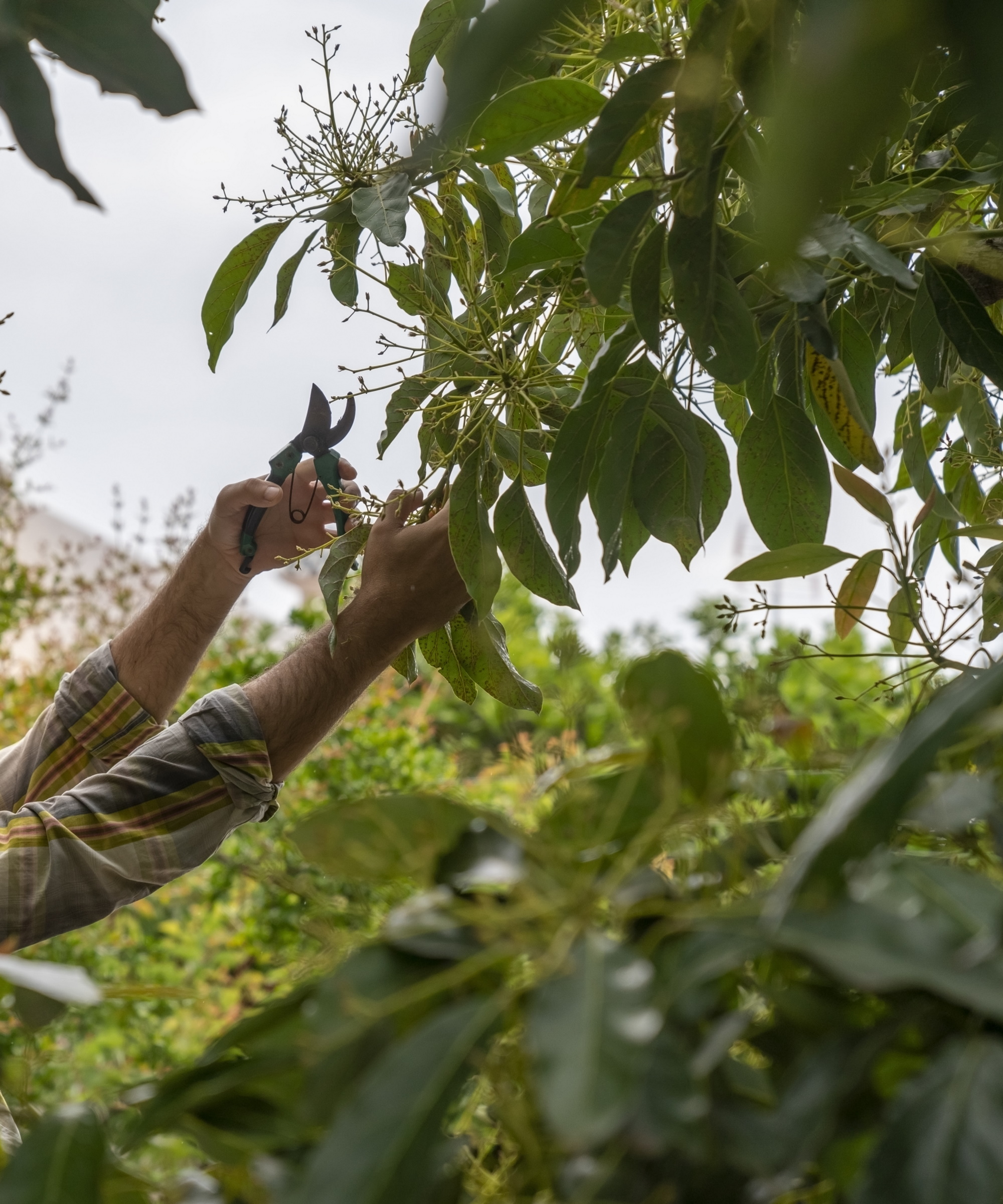
Another thing to take into consideration when trying to get your avocado tree to fruit is the need to prune your avocado tree to keep it in a healthy condition for fruiting. You should avoid pruning mistakes when doing this, by using essential pruning tools that make clean cuts - like these pruning shears from Amazon.
'Early spring is the best time to trim away any dead or small branches, letting the tree focus its energy on growing fruit rather than maintaining unnecessary growth,' explains CEO and founder at Tree Menders, Evan Torchio.
By removing any damaged and unproductive branches, you help the tree turn its energy towards fruit production. This keeps the tree healthy throughout the year in the lead-up to harvest season. Doing so can also remove any unproductive branches blocking light from the productive branches.

Growing up in northern Ontario, Evan has always found solace around trees. He has a bachelor’s degree in forestry and is a member of the International Society of Arboriculture. Evan started his career in arboriculture working for a family-owned operation, before starting Tree Menders.
FAQs
Do you need to fertilize an avocado tree?
Avocado trees can benefit from being fertilized. 'A good fertilizer goes a long way in boosting fruit production since avocados need more than just sunlight and water to thrive,' says CEO and founder at Tree Menders Evan Torchio. They should be fertilized every six to eight weeks between spring and fall, when they're actively growing. As avocado trees mature, you should also use a fertilizer with a higher nitrogen plant fertilizer number which will aid essential vegetative growth.
When are avocados ready to harvest?
Avocados are ready to pick when the fruit feels firm but give slightly when given gentle pressure. The color should be dark and it should be easy to pluck the fruits off the stem. You can also ripen avocados after picking them by placing them in a paper bag with a banana and keeping them in a dry, warm spot.
Depending on the variety of avocado tree you're growing, it's also worth noting it can take several years before it produces fruit. Typically, avocado trees only fruit from age three to four, but it can even take over 10 years in some cases. If you're looking for something quicker to grow, try planting one of the easiest fruit trees to grow.
For more avocado tree information, see our guide on how to protect avocado trees in winter, to keep your prized plants safe during the cold weather.

Tenielle is a Gardens Content Editor at Homes & Gardens. She holds a qualification in MA Magazine Journalism and has over six years of journalistic experience. Before coming to Homes & Gardens, Tenielle was in the editorial department at the Royal Horticultural Society and worked on The Garden magazine. As our in-house houseplant expert, Tenielle writes on a range of solutions to houseplant problems, as well as other 'how to' guides, inspiring garden projects, and the latest gardening news. When she isn't writing, Tenielle can be found propagating her ever-growing collection of indoor plants, helping others overcome common houseplant pests and diseases, volunteering at a local gardening club, and attending gardening workshops, like a composting masterclass.